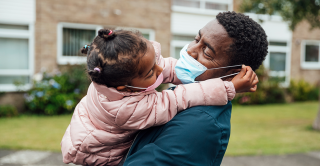Our Changing Society – charting political, social and economic change over nine decades
By Blog Editor, IOE Digital, on 18 May 2023

Commuters walk around a London train station. Image credit: Chris Mann / Adobe Stock.
18 May 2023
By Aidan Riley
The UK is home to a remarkable set of scientific studies that have tracked generations of people growing up in Britain over the last 90 years. These longitudinal population studies are unique in science and unparalleled elsewhere in the world – no other country has anything like them on the same scale.
Over those nine decades major political, social and economic changes have impacted every area of study participants’ lives. CLOSER’s ‘Our Changing Society’ resource provides this detailed historical context through a set of interactive charts and downloadable datasets to help you understand how these changes may have impacted people’s complex lives. (more…)
 Close
Close




 8 December 2022
8 December 2022
 8 June 2021
8 June 2021

